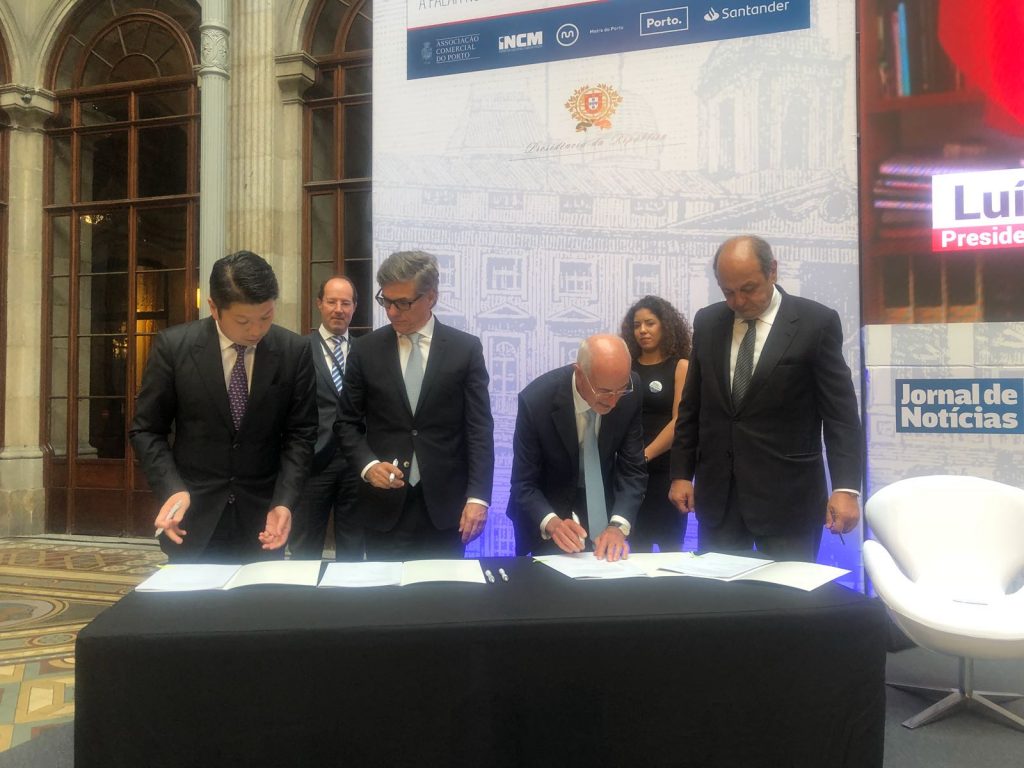São Paulo – Grupo Bandeirantes de Comunicação has signed an agreement with Global Mídia Group, from Portugal, to promote the Portuguese language. One of the projects included in the agreement is a news and entertainment website with Portuguese content produced not only in Brazil and Portugal, but also in Angola, Mozambique, Cape Verde and other African countries, and even in large Portuguese-speaking communities, such as Macao, in China.
According to Paulo Saad, vice president of Grupo Bandeirantes, the website will be called Plataforma.com and will offer video, audio and text content. “The website aims to offer content to all of the Portuguese-speaking countries and immigrant communities across the world,” said Saad to ANBA.
Here in Brazil, the content will be produced by Band, Folha de S. Paulo and Editora Três, with the last two also signing the agreement. Pictured above are Ferreira Fernandes, editorial director of Diário de Notícias, and Afonso Camões, executive director of Jornal de Notícias (both from Portugal), with Paulo Saad (center), during the agreement announcement ceremony in Portugal.
“Estimates show that we’re 280 million in the world today and that until 2050 we will be 500 million, and we’re among the world’s top ten most spoken languages in the world,” said Saad on Portuguese-speaking people in the world.
“Basically, we want to use the potential of the Portuguese language to reach this huge audience and disseminate our culture, showing each country’s own content, including from the Africans, instead of reproducing content of European news agencies,” he explained.
“With an effort, we will produce material that everyone understands,” said Saad on the different accents and language variations. The vice president said that they will also launch a Chinese version of the website, to better serve the Macao community.
On other possible partnerships, the entrepreneur of Lebanese descent said that he’s interested in signing agreements with Arab media groups such as Al Jazeera and Al Arabiya, to promote the Arab community in Brazil.
Translated by Sérgio Kakitani




